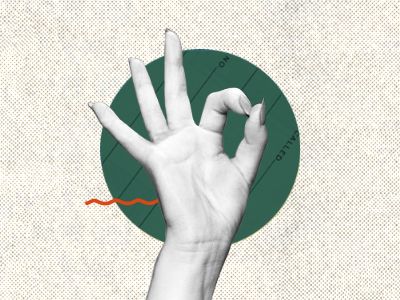
Before you think that this is another article on the Internet where the writer lists down the merits of having religion in our lives, I will insist that you keep reading because this is my queer theory on religion and culture. And while I’m at that, I’ll throw in another ingredient of my choice: history.
Three old friends
If religion, culture and history would have been three friends, here’s how I’d categorize them.
Religion – the wise friend.
History – the knowledgeable friend.
Culture – the guy who wants to have fun.
So one day, Mr. Wise, Mr. Know-It-All and Mr. Fun decided to go out and stroll. On their merry way, they met a boy. The boy had done mischief with his mother, one that clearly deserved a solid beating. The boy was partly crying and partly adamant on the ways that had annoyed his mother.
Mr. Fun found fun in the situation (duh!) and suggested “YOLO!”
Mr. Know-It-All reminded them of a story (told 45876 times already!) how he as a child had done something similar, and the solid beating he got was something from which Mr. Fun and the boy should take heed from.
Mr. Wise on the other hand, tsk-tsked them both and advised how what the boy had done wrong, how he should take example from Mr. Know-It-All’s beating and how Mr. Fun should really have fun without hurting anyone. Mr. Wise also went on and told the boy how he should have dealt with the situation better by making his mother see his point a little civilly.
Everyone looked at Mr. Wise with blank faces.
“No wonder he’s no fun”, thought Mr. Fun.
“No wonder he’s always quoting me”, thought Mr. Know-It-All.
And the boy just walked away, thinking, “I wonder what these three mean at all!”
While this story really has nothing directly connected to the premise of my topic, I narrated it anyway because I wanted to grab your attention. Well, not really. It’s just a very basic, a very elementary idea of how these three elements work together.
Religion, Culture and, oh wait, History!
Before I give you my own take on religion versus culture, I will talk about history on which I base much of my theory.
Religion, culture and history go hand in hand. It is safe to say that our culture has its ties in history. Furthermore, history has always proved religion to be the correct benchmark of our right versus wrong analysis. In order to look ahead clearly, you need to know what you left behind. We cannot undermine the importance of studying our past just because we don’t find sense in it. History has some very important lessons learnt the hard way by people who chose to ignore it.
History plays out in front of us each and every single day in the form of our culture. Being mindful of the footprint our previous generations left behind makes us see ahead clearly. We begin to understand how things work out in the world, the mistakes other people have made, and the things that led to their glory.
Liberation is a State of Mind
A large population of people today have grown a certain level of aversion to religion because it binds them in ways which they think inhibit their growth. They question why they need to do things a certain way in order to qualify as God fearing. Their aversion to religion has more to do with how we present religion to them, rather than what religion really is. When however, religion is there to strike a balance in the things we enjoy and how we enjoy them.

One needs a perspective shift to understand the idea of freedom in religion. For example, I cannot do this, this and this. Oh boy, what an oppression! Or, I cannot do this and this, but I can certainly do that, that and that. Or, I cannot do it this way, fine, but hmmm… I can certainly do it that way. You define your own idea of liberation.
“Aversion to religion has more to do with how we present religion to them, rather than what religion really is.”
To decide whether religion is good for you is a decision that will forever be biased unless you make a very nonjudgmental effort to understand it. Just like we give people the benefit of doubt, we need to give ourselves a chance to really know about religion before making an opinion of it.
Why religion is my culture
Since I am a student of the Quran, my personal experience was very intense with it. This Book discussed history of many people, and several religions. In them, I found the roots of my own Deen (Deen is an Arabic word which means, way of life). It talks about culture in the form of shariah law. Sharia’a is an Arabic word which means, to stand tall. It hints at the clarity of thoughts of someone who actively practices it. Practice never comes without knowing.
Sharia’a means ‘to stand tall’.
That being said, this clarity wasn’t attained overnight, nor was it an opinion I made out in plain emotion. It has taken me years, yes years, to be finally be able to say confidently that the only culture I follow today, is my religion. If I can make a hierarchy chart for you, religion would be the governing body of culture.
My religion does not stop me from enjoying the culture which celebrates my nationality or ethnicity. I can do that. I just have to remember that my origin and my race doesn’t make me superior. A shift of perspective.
I am allowed to celebrate happiness and sadness. Just that I have to make sure I’m inline with what it tells me. Happiness and joy can be overwhelming emotions. My religion requires me to find a balance so I myself do not lose balance.
Religion became my culture because it gave me a new lens to see the world. A more balanced way. It has groomed me into a better version of myself. A version which I have been able to get when I got to know the three friends: religion, culture and history.




